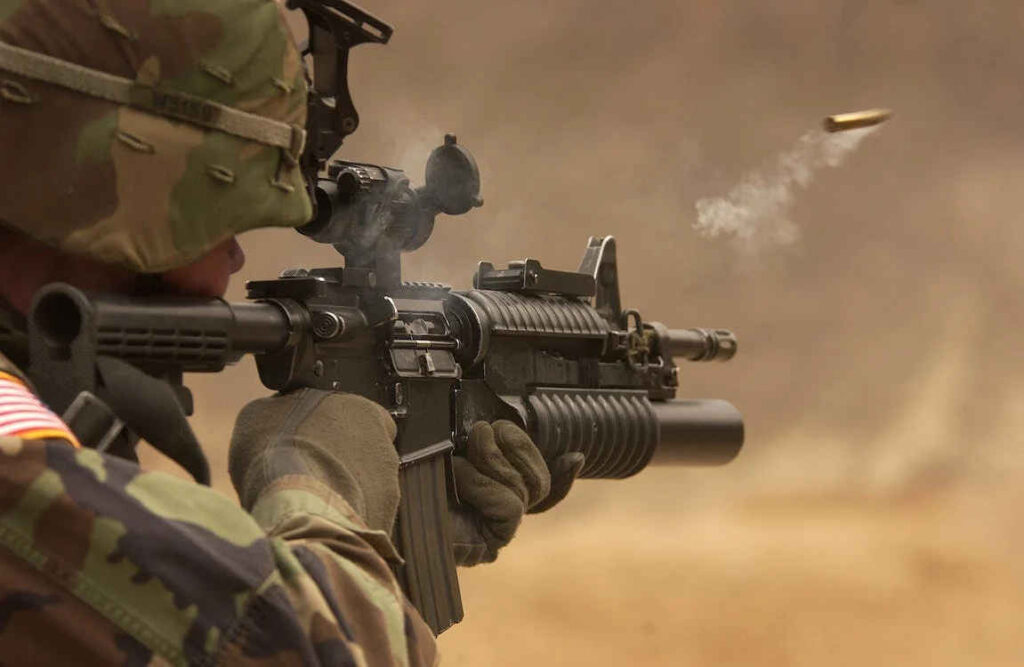The next act in the sad trilogy will be a scattered, but long conflict.
The journalistic cliché that World War Three is already underway has often circulated from one publication or another for decades. Indeed, since the beginning of the 21st century, when the US was attacked on 11 September 2001, people have been talking about a clash of civilizations as a new form of global conflict. Then, however, Washington’s declared “war on terror” got bogged down in the Middle East and then disappeared from the agenda altogether. Instead, the “good old” rivalry between the major countries was gradually revived, first in the political, propaganda and economic spheres, but with an increasingly pronounced military and force element. This was accompanied by warnings of the risk of a World War III in the classic sense of the last century. Such considerations, however, remained notional.
Today, the idea of a “World War III ” is fathomable. Nevertheless, a similar situation to World Wars One and Two seems inadmissible at the end of the first quarter of the 21st century, although some commentators see similar features in the armed conflict in Ukraine. Structurally, however, the state-of affairs is very different. The presence of nuclear weapons in the hands of the world’s major players and a very complex range of significant and diverse players in international politics rule out (and make highly unlikely) a head-on collision between the major powers or their blocs, as was the case in the last century. However, the changes taking place on the world stage and in the balance of power are so serious that they are “worthy” of a confrontation on the scale of a world war. In the past, such shifts have led to major military clashes. However, now the “world war”, that some repeatedly talk about, is a chain of large but localized confrontations, each of which in one way or another involves the main players, balances on the verge of spilling over from the original zone, and is indirectly linked to other hotbeds of instability. This sequence of military events began with the Middle East conflicts of the last decade (Yemen and Syria), continued in Ukraine since 2014, then the South Caucasus and now Palestine. It is clearly too early to put an end to this list.
End of status quo means world entering long period of turmoil
International colleagues have already pointed out that in the context of the disappearance of former frameworks and constraints (the very decline of the world order, which now seems to be universally recognized), dormant conflicts and disputes are almost inevitably resurfacing. What has been held back by the pre-existing arrangements is erupting. In principle, everything is quite traditional; it was so before and it will be so after. The ideologization of world politics in the twentieth century meant that the end of that political period was very ideological in itself. The view that humanity has found the optimal political model, which will turn the page on previous confrontations, has triumphed. This is the only way to explain, for example, the belief that the contours of state borders will not change in the 21st century (or only by mutual agreement), because it has been decided and established that way. The historical experience of Europe and other continents in every historical period does not support such an assumption – borders have always changed fundamentally. And shifts in the balance of power and opportunity inevitably give rise to the desire to move territorial boundaries.
Another thing is that the importance of territories is different now than it was in the past. Direct control of certain spaces can now have more costs than benefits, while indirect influence is much more effective. Although it is worth noting that 15-20 years ago, at the height of economic and political globalization, it was often argued that in a fully interconnected ‘flat’ world, geographical and material proximity no longer mattered. The pandemic was the first and most vivid argument against this approach. The current chain of crises has forced a return to more classical ideas about the role of subordination between the regional and the global.
The disappearance of the status quo means that the world has entered a long period of turmoil in which new frameworks have not yet been established (and it is not clear when they will be) and the old ones are no longer working. The formal end of the era of the Treaty on Conventional Armed Forces in Europe (Russia has withdrawn from it, the other countries have announced the suspension of their participation) is an example of the dismantling of existing institutions. The unprecedented intensity of the wave of assaults on the UN from all sides is an attack on the main bastion of the world order established after 1945.
The current “World War Three” is likely to endure over a long time frame and be scattered in terms of locations. But based on its results – and there will be some – a different structure of international organizations will emerge. This is always the case. This does not mean that the UN, for example, will disappear, but there will definitely be a profound correction of the principles on which it operates.
Image credit: Pixabay


https://rumble.com/v3g58o1-lest-you-forget-the-talmudic-yahweh-chosen-rats-and-the-911.html
All wars are ‘Bankers Wars’ they finance both sides they can never lose. Wake up peoples of the World!